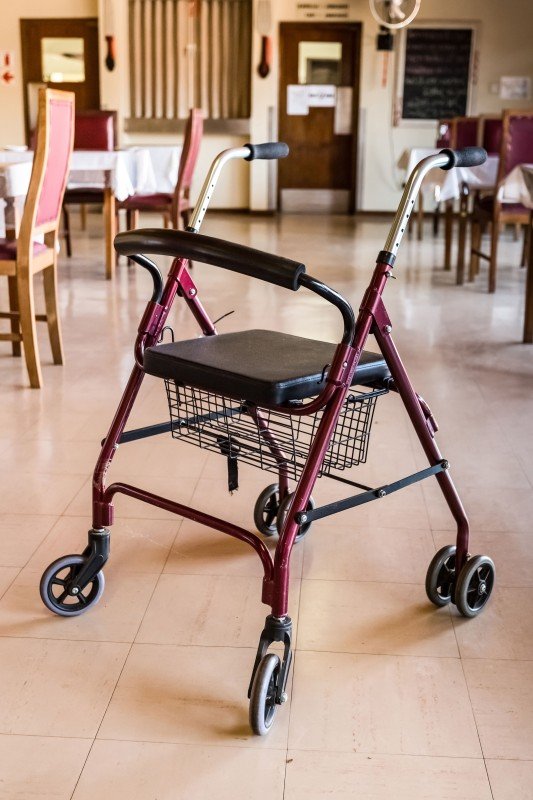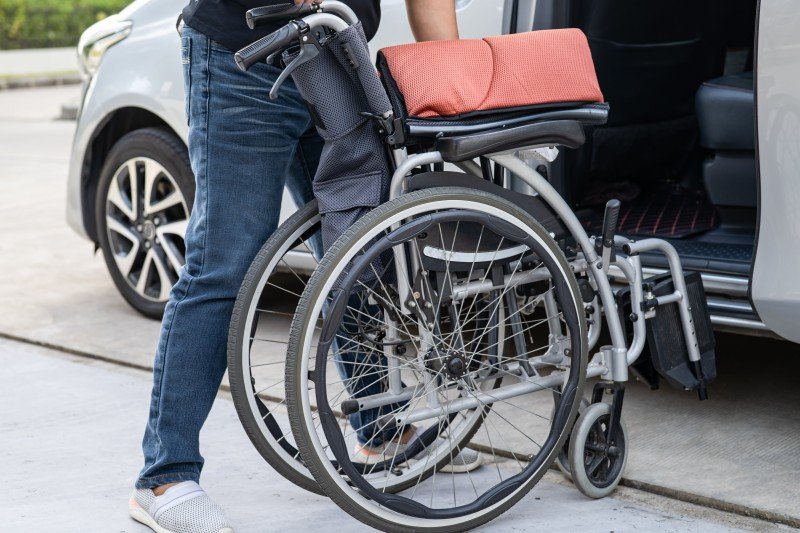mobility_scooters3636
mobility_scooters3636
Ten Mobility Scooter UK Myths That Aren’t Always The Truth

Mobility Scooters in the UK: A Comprehensive Guide
In the United Kingdom, mobility scooters are becoming a significantly popular means of transportation for individuals with mobility issues, offering them with the flexibility to browse their neighborhoods independently. These motorized lorries are designed to assist those who have trouble walking or using a manual wheelchair, using a practical and comfortable solution for daily travel. This short article looks into the world of mobility scooters in the UK, exploring their advantages, legal requirements, and how to pick the right one.
Introduction to Mobility Scooters
A mobility scooter is a battery-powered vehicle that usually has 3 or 4 wheels, a seat for the chauffeur, and handlebars for guiding. They are developed to be easy to utilize and preserve, making them ideal for older grownups and individuals with impairments who wish to maintain their independence. Mobility scooters been available in various sizes and models, each catering to different requirements and preferences.
Advantages of Mobility Scooters
- Increased Independence: Mobility scooters enable users to take a trip longer distances without the physical stress related to strolling or using a manual wheelchair. This self-reliance can substantially enhance their quality of life.
- Cost-efficient: Compared to other motorized cars, mobility scooters are reasonably inexpensive. They likewise need very little maintenance, which can save users a lot of cash in the long run.
- Reduce of Use: Most mobility scooters are created to be user-friendly, with user-friendly controls and comfy seating. They are often lightweight and can be quickly taken apart for transport.
- Improved Social Interaction: By enabling users to venture out more often, mobility scooters can help in reducing sensations of seclusion and isolation, cultivating social connections and community participation.
- Enhanced Safety: Mobility scooters are equipped with functions such as headlights, brake lights, and horns, making them more secure for use on roadways and in public spaces.
Kinds Of Mobility Scooters
When selecting a mobility scooter, it’s crucial to think about the type that best suits your requirements. Here are the main types available in the UK:
-
Class 2 Mobility Scooters:
- Speed: Limited to 4 mph (6.4 km/h)
- Usage: Suitable for pavements and pedestrian locations
- Functions: Compact and light-weight, foldable for easy transportation
-
Class 3 Mobility Scooters:
- Speed: Can reach up to 8 miles per hour (12.9 km/h)
- Usage: Suitable for both pavements and roadways, provided they are signed up and guaranteed
- Features: Sturdier build, often with advanced functions like suspension and bigger batteries
-
Sturdy Mobility Scooters:
- Capacity: Designed to support users weighing up to 400 pounds (181 kg)
- Usage: Ideal for those who need a robust and durable scooter
- Features: Reinforced frame, larger seat, and enhanced stability
-
Off-Road Mobility Scooters:
- Terrain: Built to handle rough and uneven surfaces
- Use: Suitable for users who delight in outdoor activities like hiking or fishing
- Functions: All-terrain tires, high ground clearance, and effective motors
Legal Requirements for Mobility Scooters in the UK
Utilizing a mobility scooter in the UK features certain legal duties. Here are the bottom lines to think about:
- Registration and Insurance:
- Class 2 Scooters: No registration or insurance coverage required
- Class 3 Scooters: Must be signed up with the DVLA, guaranteed, and show a legitimate MOT certificate if used on roadways
- Motorist Requirements:
- Age: Users must be at least 14 years old
- Health: No specific health conditions are needed, however users should have the ability to control the scooter safely
- Speed Limits:
- Class 2 Scooters: 4 miles per hour (6.4 km/h) on pavements
- Class 3 Scooters: 8 miles per hour (12.9 km/h) on roadways, 4 miles per hour on pavements
- Security Equipment:
- Lights: All scooters used on roads must have front and rear lights, signs, and a horn
- Reflectors: Required for usage on roadways, especially during low presence conditions
- Tax and Parking:
- Tax: Class 3 scooters are exempt from automobile tax
- Parking: Users can park in designated disabled parking areas with a legitimate Blue Badge
How to Choose the Right Mobility Scooter
Selecting the best mobility scooter involves considering several factors:
-
Mobility Needs:
- Range: How far do you require to take a trip?
- Surface: Will you be using the scooter on pavements, roads, or off-road?
- Weight Capacity: What is the maximum weight the scooter requires to support?
-
Budget plan:
- Initial Cost: Mobility scooters can range from a couple of hundred to a number of thousand pounds
- Ongoing Costs: Consider the expense of batteries, maintenance, and insurance
-
Functions:
- Comfort: Look for a scooter with a comfy seat and adjustable controls
- Storage: Some scooters provide additional storage for shopping bags or individual products
- Portability: If you require to transfer the scooter, choose a model that is light-weight and foldable
-
Track record and Support:
- Brand: Research reliable brand names understood for their quality and dependability
- Warranty: Check the warranty duration and what it covers
- Client Support: Ensure the maker or seller provides good customer assistance and service
Frequently Asked Questions About Mobility Scooters in the UK
-
Do I require a license to drive a mobility scooter?
- No, you do not require a driving license to run a mobility scooter in the UK. However, Class 3 scooters need to be signed up with the DVLA and guaranteed if utilized on roadways.
-
Can I utilize a mobility scooter on the pavement?
- Yes, both Class 2 and Class 3 scooters are allowed on pavements, however Class 3 scooters are restricted to 4 mph.
-
Exist any constraints on where I can utilize a mobility scooter?
- Class 2 scooters are limited to pavements and pedestrian locations. Class 3 scooters can be utilized on roads, but they need to meet certain legal requirements.
-
How do I maintain my mobility scooter?
- Regular upkeep includes inspecting battery levels, tire pressure, and brake functionality. It’s likewise important to clean the scooter frequently and keep it in a dry location.
-
Can I get a mobility scooter through the NHS?
- The NHS provides mobility scooters through the Disabled Living Allowance (DLA) or Personal Independence Payment (PIP). You can also acquire or rent a scooter from a personal merchant.
-
Is a cheap Mobility scooters Near me scooter tax-deductible?

- In many cases, the expense of a mobility scooter can be declared as a medical expenditure. Speak with a monetary consultant for particular guidance.
Tips for Using a Mobility Scooter Safely
- Use Appropriate Clothing:
- Wear comfy and weather-appropriate clothing. Consider using a high-visibility coat when utilizing the scooter on roads.
- Keep the Scooter:
- Regularly inspect the battery, tires, and brakes to guarantee the scooter is in great working condition.
- Follow Traffic Rules:
- Obey traffic signs and signals, and utilize designated pedestrian and cycle paths when possible.
- Use Safety Equipment:
- Always utilize the headlights, brake lights, and horn, particularly throughout low visibility conditions.
- Bear in mind Others:
- Be polite to pedestrians and other roadway users. Decrease when approaching congested areas.
Mobility scooters are an important tool for people in the UK who deal with mobility challenges. They provide a series of advantages, from increased self-reliance to improved safety, making them a popular choice for older grownups and individuals with disabilities. By understanding the various kinds of scooters, legal requirements, and how to pick the ideal one, users can delight in the liberty and benefit these cars provide. Whether for daily errands or recreation, a mobility scooter can considerably enhance the lifestyle for numerous people.
Extra Resources
- DVLA Website: For info on registering and guaranteeing a Class 3 mobility scooter
- Age UK: Offers recommendations and support for older adults considering a mobility scooter
- Disability Rights UK: Provides guidance on accessing mobility scooters through financial assistance programs
By putting in the time to research study and select the ideal mobility scooter, users can take pleasure in greater self-reliance and a more active lifestyle.

